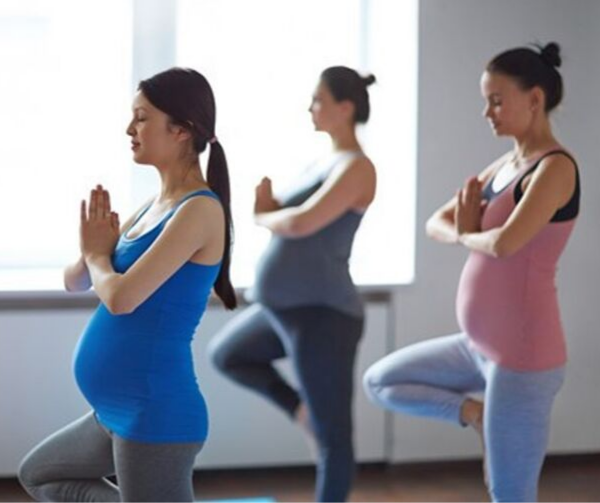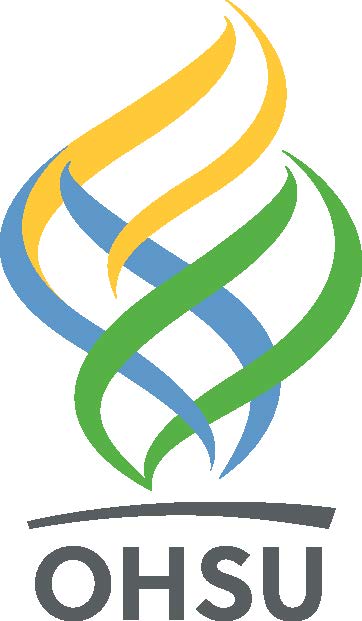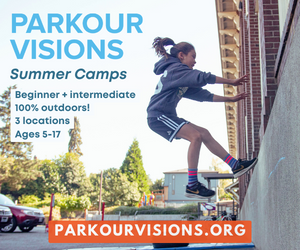You know that prenatal yoga class and meditation you keep meaning to do? It might help you and your baby after birth. The birth of your baby is a very special time! It can also be one marked by irritability and overwhelming stress. We need to understand more about what tools can help stave off or reduce the effects of postpartum depression. Is it worse for those who have experienced depression prior to pregnancy? Can mindfulness and meditation during pregnancy help prevent parental and infant distress and promote maternal well-being?

Researchers at OHSU reached out to Portland Moms Blog to make us aware of two new studies they are conducting to help answer these questions! You could help yourself, your baby, and other families while being compensated for your time.
The Maternal Well-Being Study
Learning about mindfulness, meditation, and cognitive-behavioral skills
The Maternal Well-Being Study at OHSU aims to learn more about pregnancy and those who are experiencing or have experienced difficulties with depression, low mood, anxiety, or high stress. Up to 1 in 5 women report clinical levels of depression postpartum. The focus of this study is understanding how mindfulness and cognitive-behavioral skills may affect overall well-being, emotions, and distress.
Researchers are using a skills-based intervention, meaning it’s focused on helping participants develop new skills and strategies. Some skills taught in this intervention are meditation, movement exercises, deep breathing, and mindfulness. Mindfulness is a type of skill involving learning to focus your attention solely on what is happening in the moment, without guilt or judgement.
This study also provides education related to depressive symptoms and depression and teaches cognitive behavior skills in order to help regulate emotions and distress. Overall, the study hopes to provide helpful tools for navigating this very special time.
What to expect from the study
The Maternal Well-Being Study is currently recruiting and enrolling individuals 8-22 weeks pregnant. Those who are eligible will be randomized into one of two different groups: a mindfulness-based cognitive therapy group (MBCT) that meets eight times during pregnancy or a single psychoeducation course 6-9 months postpartum. You’ll have an equal chance of being randomized to either group.
This study also includes a postpartum MRI scan which is a safe, noninvasive scan using a large, donut-shaped magnet to take pictures of the brain.
Those who participate in the Maternal Well-Being Study can be compensated up to $385 for their participation.
The Roo Study
Learning about infant and maternal well-being
The Maternal Well-Being Study is partnering with the Roo Study on Mom and Baby Well-Being and many people who choose to participate the Maternal Well-Being Study may also be eligible for the Roo Study. The focus of the Roo Study is on infant well-being as well as maternal well-being. This study involves the same mindfulness-based intervention and participation in addition to an MRI scan of your baby’s brain. There is no radiation, injections, or sedation involved so it is safe for mom and baby alike!
Those who participate in the Roo Study can be compensated up to $570.
Interested?
Those interested in participating in the Maternal Well-Being Study can read more about it here or contact the study staff at [email protected] or 503-494-4476 to see if you are eligible! If you are interested in the Roo Study, please also contact the listed email or phone number.
 OHSU is a nationally ranked hospital and is leading the Pacific Northwest’s efforts in the pursuit of research. The Maternal Well-Being Study and the Roo Study offer a chance to be a part of innovative research seeking to help those who struggle with low mood, depression, and anxiety and possibly prevent postpartum depression.
OHSU is a nationally ranked hospital and is leading the Pacific Northwest’s efforts in the pursuit of research. The Maternal Well-Being Study and the Roo Study offer a chance to be a part of innovative research seeking to help those who struggle with low mood, depression, and anxiety and possibly prevent postpartum depression.


















